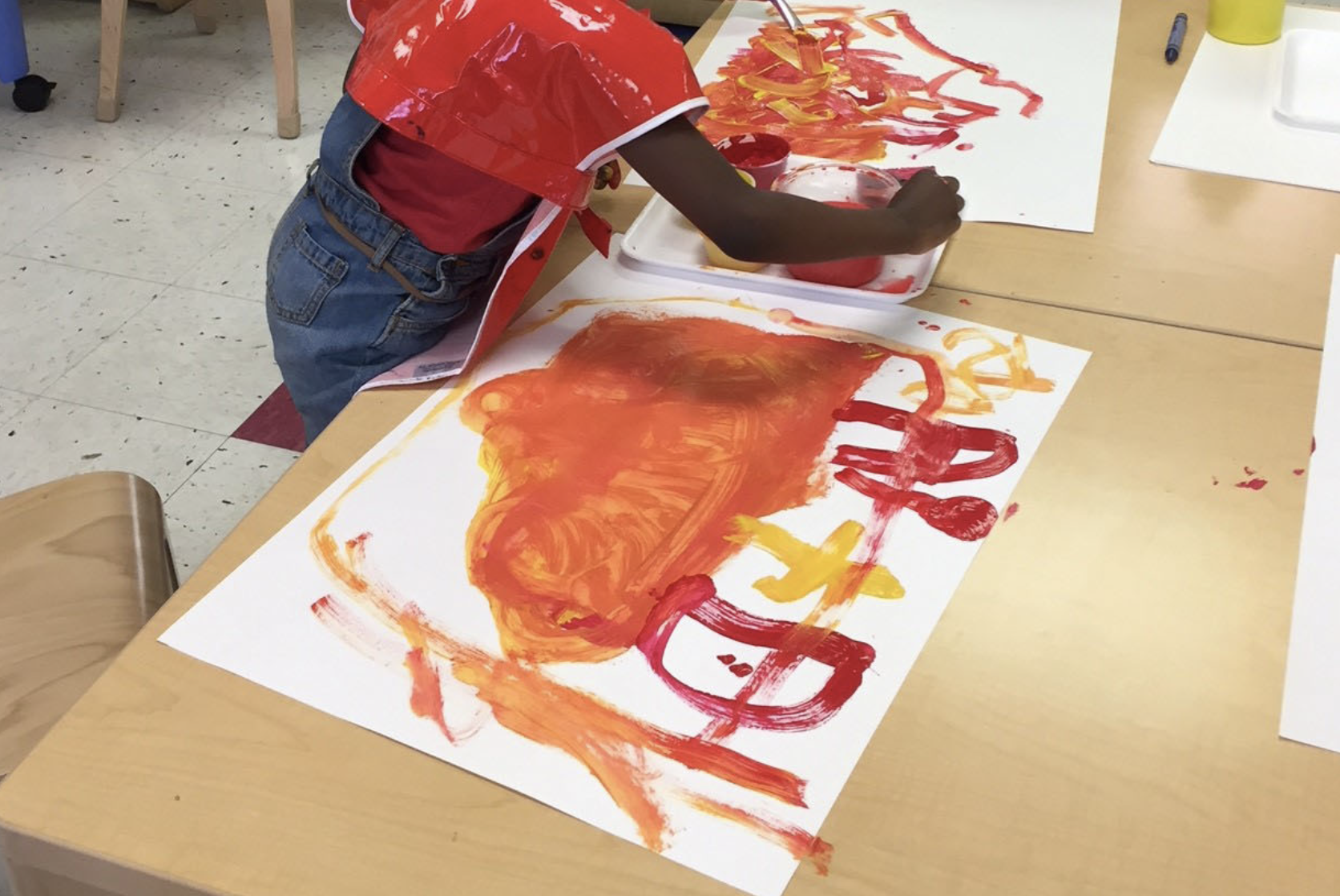“Repetition and variation are foundational principles in the next phase of creating unified designs.”
– Nancy Smith




Materials and Tools
- 18” x 24” white paper 80#
- Red paint in soufflé cup
- Yellow paint in soufflé cup
- 1” brush
- Water in deli cup
- Sponge
- Tray

Activities
Step 1: Invitation to Explore
- What colors did we paint with last week?
- What color did we make?
- What do you see on my tray this week?
- We have yellow and red! What do think will happen when we mix yellow and red?
- Review removing the lid off of soufflé cups.
- Create an area of color in yellow.
- Now I want to use red. Can I put my brush into the red paint? Why not?
- Model cleaning the brush and drying it on the sponge (explain how important it is to dry the brush. Sing brush washing song!)
- Remind the students of the connection between bathing and drying off before you put on your clothes.
- Explain that yellow is a bright color but it doesn’t have big muscles! It’s bright, but not too strong.
- Than ask, What do you think will happen when we mix yellow and little bit of red together?
- Model mixing dark orange and light orange.
- How do you think we make a light orange, a dark orange?
Step 2: Work-time
- Invite 3-4 students to the art center.
- Encourage students to stand or sit, whichever is more comfortable for them, so that they can use their whole arm as they move the brush on the paper.
- Each student has his own tray with a cup of red paint and a cup of yellow paint, a brush, deli cup with water and a sponge.
- Review removing the lids from the soufflé cups.
- Remind students to wash their brushes between dipping into red or yellow.
- You will need to be fully present at the table until the students have internalized the brush washing routine into their approach to painting.
- Comment on the many shades of orange the students are creating and how they are moving their brushes to create patches/areas of color.
Step 3: Reflection
I see yellow and red in this painting. What color did you make? You can extend the reflection by asking: Where do you see a dark orange, a light orange?
Review how to make orange lighter and darker with your students.
Vocabulary
Paintbrush, handle, wood, bristle, sponge, mixing, add, blend, light, dark, lighter, darker, top, bottom, corner, middle

